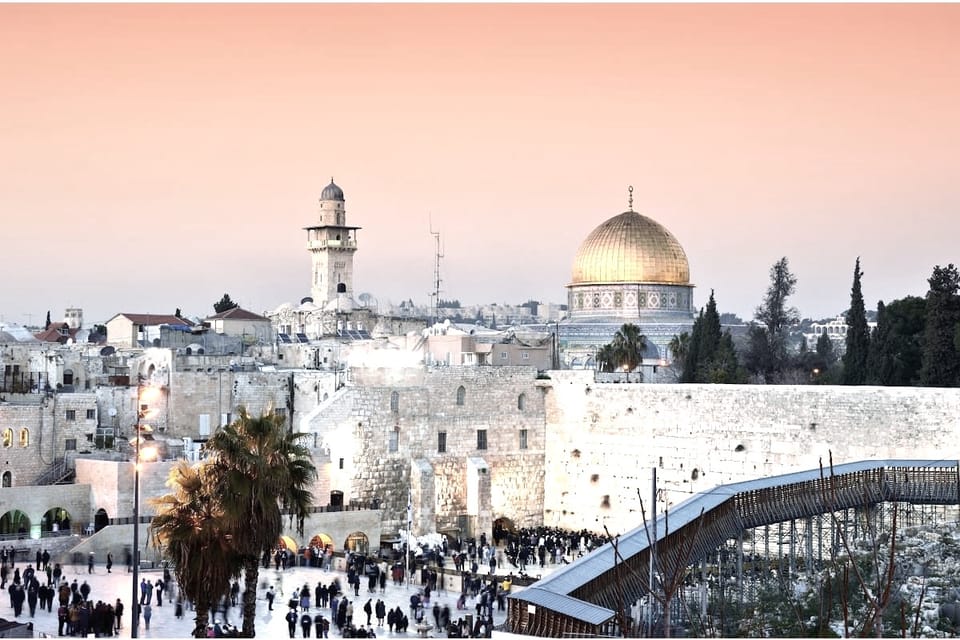How Does the Concept of “Moshiach ben Yosef” Relate to Current Events and Zionism?

Among the deeper concepts in Torah eschatology is the idea that there will be two stages of redemption, led by two figures: Moshiach ben Yosef and Moshiach ben Dovid.
The term “Moshiach ben Yosef” appears in many classical sources—Talmud, Midrash, Zohar, and the writings of the Vilna Gaon and Maharal—and has taken on various interpretations throughout the generations. But in recent times, some groups, particularly within Religious Zionism, have redefined this idea in a political-nationalist framework—claiming that the modern State of Israel represents “Moshiach ben Yosef.”
The Charedi Torah worldview, however, sees this interpretation as theologically unfounded, dangerously misleading, and inconsistent with the sources of our mesorah.
Let us first understand what Moshiach ben Yosef truly is, based on Torah sources.
1. What Is Moshiach ben Yosef?
Chazal teach that Moshiach ben Yosef will be a precursor to Moshiach ben Dovid. His role is to fight the wars of Hashem, prepare the people spiritually and physically, and possibly even sacrifice his life to pave the way for the final redemption.
The Vilna Gaon explains:
תפקידו של משיח בן יוסף הוא להילחם במלחמות ה' נגד כוחות הרע, ולחזק את ישראל בעבודת ה'. “The mission of Moshiach ben Yosef is to wage the wars of Hashem against the forces of evil and to strengthen Israel in the service of Hashem.” — Kol HaTor, Chapter 2 [1]
Other sources, such as the Zohar (Bereishis 25a) and Tanchuma (Va’era 14), describe Moshiach ben Yosef as a figure who will bring spiritual strength, help rebuild the land, and suffer for Klal Yisrael—but always under the banner of Torah and kedushah, never as a secular leader or nationalist symbol.
2. Is Moshiach ben Yosef a Secular Movement or State?
The idea that the secular Zionist enterprise—founded by Jews who rejected Torah observance—represents Moshiach ben Yosef is a modern invention with no precedent in Chazal or the Rishonim.
As Rav Elchonon Wasserman zt”l wrote:
הם מנסים להלביש את תנועתם החילונית בלבוש של קדושה, ולטעון שהיא אתחלתא דגאולה או משיח בן יוסף — וזהו שקר. “They attempt to dress their secular movement in garments of holiness, claiming it is the beginning of redemption or Moshiach ben Yosef — this is falsehood.” — Kovetz Maamarim, “Torah and Nationalism” [2]
Furthermore, Kol HaTor, often quoted in Religious Zionist circles as support for Zionism, was distorted in later editions. The authentic writings of the Gra’s talmidim emphasize that only Torah-observant efforts, grounded in yiras Shamayim, can be connected to the process of Moshiach ben Yosef.
The Satmar Rebbe, Rav Yoel Teitelbaum zt”l, addressed this directly:
מנסים לומר שהמדינה היא משיח בן יוסף — אבל אין לזה שום שייכות אם אין תורה ויראת שמים. “They try to say that the State is Moshiach ben Yosef—but it has no connection if there is no Torah and fear of Heaven.” — Vayoel Moshe, Maamar Shalosh Shevuos [3]
3. Why the Confusion?
Part of the confusion stems from the external similarities between the classical mission of Moshiach ben Yosef—rebuilding the land, gathering the exiles, fighting wars—and what some perceive happening in the modern State of Israel.
But the difference is fundamental: the Torah defines redemption as a spiritual transformation, not just a political or geographical one.
אין גאולה אלא כאשר מלכות שמים שולטת, לא מלכות האדם. “There is no redemption unless the Kingship of Heaven reigns—not the kingship of man.” — Chazon Ish, Pe’er HaDor, Vol. 4, p. 37 [4]
4. How Do Charedim View the State’s Role?
Many Gedolim, including Rav Chaim Kanievsky zt”l, Rav Shach zt”l, and Rav Moshe Shmuel Shapiro zt”l, taught that we do not know Hashem’s calculations. It’s possible that current events, including the State’s existence, are part of the path toward Geulah—but that does not sanctify or validate the State itself.
As Rav Shach once said in a public drasha:
כל מה שקורה הוא בהשגחת ה', אבל לא כל דבר הוא קדוש. “Everything that happens is under Hashem’s supervision, but not everything is holy.” [5]
Moshiach ben Yosef is not a political entity. It is a holy process, led by tzaddikim, immersed in Torah, preparing Am Yisrael spiritually for Moshiach ben Dovid.
5. So What Should We Expect?
We await Moshiach ben Yosef as a person, not a regime. We await his actions to be done with emunah, Torah, and yiras Shamayim—not as a secular state built on rebellion against Torah values.
And we know from the Nevi’im and Midrashim that the path to Geulah may include pain, conflict, and struggle. But the outcome will be clear: Hashem’s kingship revealed in full, not human power.
Conclusion: Be Patient, Be Pure
The idea of Moshiach ben Yosef teaches us that redemption unfolds in stages. But every stage must be in line with Torah. We do not force the Geulah through political revolutions, nor do we sanctify nationalism that lacks Torah.
Let us instead daven, learn Torah, do teshuvah, and purify ourselves. That is how we prepare for the true redeemers—Moshiach ben Yosef and Moshiach ben Dovid, both of whom will come only with the full light of Hashem’s will.
Sources
- Kol HaTor, Chapter 2 – attributed to the teachings of the Vilna Gaon.
- Rav Elchonon Wasserman, Kovetz Maamarim, Maamar “Torah and Nationalism”
- Rav Yoel Teitelbaum, Vayoel Moshe, Maamar Shalosh Shevuos
- Chazon Ish, Pe’er HaDor, Vol. 4, p. 37
- Rav Elazar Menachem Man Shach, public address in Bnei Brak, 1982 (documented in Michtavim u’Maamarim)
